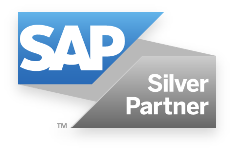Why accurate job costing is critical for business

For businesses that typically operate in construction, contracting, manufacturing and white collar consultancy, job costing is an important part of their accountancy function. It allows them to track and predict costs for discrete jobs, ensuring their profitable and delivered on time. Additionally, it enables strong project management – from quoting for new business right through in-life management to wrapping up the project.
Getting the quote right
Sales and winning new business is a critical function for every business. But every business faces a dilemma: making sure their price is competitive but also profitable. When constructing quotes using a job order cost system, the labour and materials elements are calculated and used to construct the final quote. Whilst this sounds relatively easy, there are risks involved and, if a project is complex, managing these risks closely is the best way to ensure the projected margin is finally delivered. The best way to do this – especially when the projected margins are not large – is to use specialist job costing software.
{{cta(‘64102bfc-08eb-4d09-9fca-5555f3292c30’)}}
The difficulty without a true job costing functionality
Controlling projects without specific software is more difficult. It means that the finance function needs more entries from Work in Progress (WIP) into Cost of Goods Sold and do this more frequently. It is not always immediately clear when problems are emerging. So, there might be lack of tight cost control, increasing risk of over-runs and additional costs which all endanger the chance of making your target margin. The lack of appropriate software means that there are more risks to control with less tools.
And, if you have more than one job ongoing simultaneous then there is a chance of mis-allocation and not identifying problems early.
Where a good job order cost system makes the difference
There are five main areas where the software adds real value to a business:
- Faster invoicing: the costs need to be reconciled to a particular project and, if you are invoicing during or at the end of a project, then being able to invoice faster means faster payment, giving an improvement in cash flow
- Better control: more accurate budgets against costs can be created and compared. This shows up anomalies quickly and allows them to be rectified. Each project is kept separate and, given all jobs tends to be different, it will highlight which are on-track and which require management action
- Manage risk proactively: this is similar to Better Control but it also looks at ensuring the margin that was anticipated is actually delivered. Jobs rarely actually work out precisely the way they were quoted. It is natural that things change. But it is very important for companies that depend on accurate job costing that they can identify which jobs pose most risk and which are on-track (even if significantly different from what was originally proposed)
- Accurate tracking: whilst every system is only as good as the information put into it, good project costing software tracks the three main inputs into a project (labour, materials and overhead)
- Maintain (and perhaps enhance) profitability: whilst the management of risk has been identified, the software also allows companies to identify areas for cost savings too. Managed properly, this can lead to increased profitability on a particular job
Adding to the sum of knowledge
Each time a company completes a separate job there is an opportunity to make the assumptions it uses to construct quotes more accurate and up to date. This task is important because it allows better quotes to be produced (it increases the scope to be competitive). Good job costing software makes this much simplier to complete. Whilst it won’t help with a particular project, it will make quotes more accurate.
Performance and project cost management
Lastly, in project management improvement is important too. There is an overall change in performance levels of contributing teams when they know that detailed, accurate information is available to management during the term of the project and that management will take action when a project goes off-track.
Good software enables this. The functions you need, as well as project costing, you will need the following functionality within your system: time sheets, purchase requisitions and invoicing. A way of managing calls and gathering input from external users (possibly field based) is extremely useful too. And all this will appear in your ERP system.
{{cta(‘d5bef96e-09fa-4dd9-acb6-e8e0290013ce’)}}

